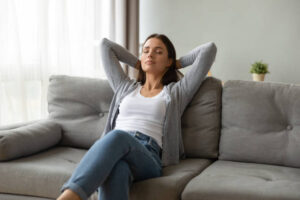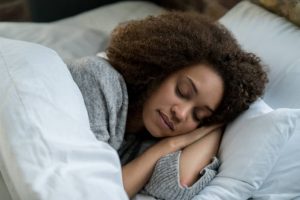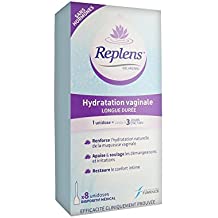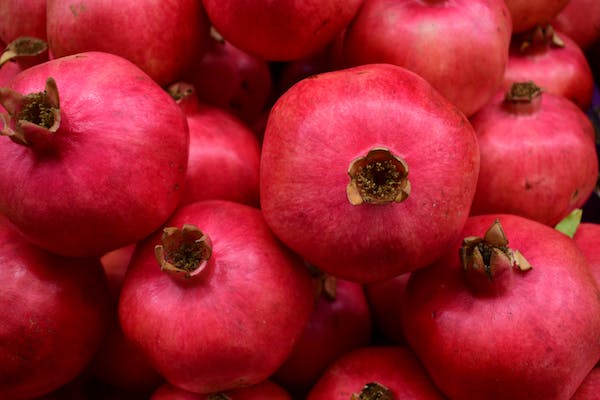-
Menopause is described as the period in a woman’s life when she has not had a menstrual cycle for 12 months. Usually happens around age 50.
-
Menopause symptoms include night sweats, vaginal dryness, mood changes, sleep difficulties, and irregular periods.

What is menopause?
Menopause is described as the period in a woman’s life when she has not had a menstrual cycle for 12 months. This means that there is a permanent cessation of the menses because of ovarian failure; termination of the menstrual life. Menopause usually happens around age 50.
Menopause causes
Upon the birth of a female, her ovaries naturally contain all the eggs she will ever produce, which are later kept within them. These ovaries also generate hormones such as estrogen and progesterone that regulate ovulation, the monthly cycle, and the release of eggs.
Menopause arises when the ovaries cease to release eggs and menstruation ceases, usually being a typical aspect of aging that occurs after age 40.
However, some women may experience menopause prematurely due to various factors such as undergoing a hysterectomy that removes the ovaries or suffering ovarian damage from chemotherapy. Premature menopause refers to this condition happening before the age of 40.
Menopause symptoms
The early signs of menopause
The most common early signs of menopause is hot flashes or other vasomotor symptoms (VMS), which are sudden and intense feelings of heat that spread throughout the body.
Night sweats, vaginal dryness, mood changes, and difficulty sleeping are all possible symptoms. These symptoms can range from moderate to severe and can linger for years.
Other symptoms include:
-
Irregular periods
-
Changes in libido
-
Vaginal dryness
-
Pain during intercourse
-
Urinary problems
-
Weight gain
-
Depression
-
Weight gain
-
Headache
-
Hair loss or thinning
-
Dry skin
-
Breast tenderness
3 Stages of menopause
There are stages of menopause.
-
Perimenopause. This stage often begins a 3- to 5-year period before menopause, when your ovaries begin to produce less estrogen The perimenopause stage occurs until the actual menopause stage, when your ovaries cease producing eggs.
-
Menopause. Menopause is described as the 12-month period in a woman’s life without a menstrual cycle.
-
Postmenopause. These are the period of year following the menopause.
Factors contributing to premature menopause
There are several factors that can necessitate premature menopause. Factors like your genes, immune system issues, or medical interventions
Ovarian failure
Ovarian failure is the failure of cyclic ovarian function to release eggs before age 40 due to some natural unknown circumstances that contribute to premature menopause.
Induced menopause
When a woman undergoes the surgical removal of her ovaries due to medical reasons, like uterine cancer or endometriosis, it is referred to as oophorectomy. Moreover, the ovaries may get damaged as a result of radiation or chemotherapy, leading to their removal.
Lifestyle changes to deal with menopause symptoms
1. Regular exercise. Engaging in physical activity such as walking, jogging, cycling, or swimming can help reduce the severity of hot flashes and other health condition like heart disease, diabetes, and osteoporosis.

2. Balanced diet. Eating a diet rich in fruits, vegetables, whole grains, and lean protein can help manage weight gain and hot flashes.

3. Relaxation techniques. Deep breathing, meditation, and yoga are all relaxing strategies that can help regulate hot flashes and enhance sleep quality.

4. Adequate sleep. Adequate sleep is critical for controlling menopausal symptoms including mood swings and exhaustion. Establishing a soothing sleep environment, following a nighttime ritual, and avoiding electronic devices before bed can all assist enhance sleep quality.

5. For dryness. use an over-the-counter vaginal moisturizer or lubricant.

6. Kegel exercises might help you strengthen your pelvic floor muscles and avoid bladder leakage.

What happens after menopause?
As women age, the prevalence of certain health issues increases, which are associated with the reduction of estrogen levels that occurs during menopause. Women are more likely to encounter:
-
Sleep disturbances
-
More wrinkles
-
Cataracts
-
Bone loss
-
Cardiovascular disease





